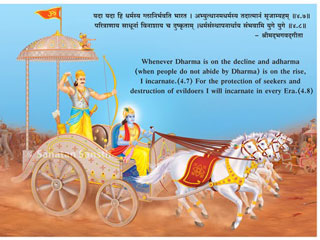

1. The special significance of the Padma Vibhushan Award
The Centre instituted the ‘Padma’ Awards in 1954. The President of India confers these Awards on the Republic Day of India. The Padma Vibhushan Award is the second-highest civilian Award in India after the Bharat Ratna. Till today, the Award has been bestowed on 331 people. Mr Satyendra Nath Bose, a mathematician from Bengal known for his exemplary work on quantum mechanics, was the first recipient of this Award. Earlier this year, Mulayam Singh Yadav (Founder of Samajwadi Party) was posthumously conferred this Award in the field of public affairs.
The Prime Minister of India constitutes the Padma Awards Committee every year. The representatives from the Union and State Governments, and the Union Ministers, nominate the candidates to the Committee. The Committee then finalises the list; it is then shared with the Prime Minister, the Union Home Minister and the President for approval. Subsequently, the President of India confers these Awards on 26th January. Since 2017, the nomination process has been open to the public in addition to the Union and State Governments.
2. Distinguished people who received the Padma Vibhushan Award for their remarkable contributions
Many distinguished people have received the Padma Vibhushan Award for their invaluable contribution to society. The list of Awardees includes Maharshi Dhondo Keshav Karve, Ratan Tata, Ghanshyamdas Birla, Finance Minister John Mathai, Justice VR Krishna Iyer, Madhav Shrihari Aney, Dr Vikram Sarabhai, Army Chief Sam Manekshaw, MS Subbalakshmi, Ustad Bismillah Khan, Scientist Satish Dhawan, Pandit Birju Maharaj, H.H. Pandurang Shastri Athavale, Tarkateertha Lakshman Shastri Joshi, Atal Bihari Vajpayee, Govindbhai Shroff, Lakshmi Sahgal, Usha Mehta, Lata Mangeshkar (The Nightingale of India), Pandit Bhimsen Gururaj Joshi, Nanaji Deshmukh, Pandit Jasraj, Pandit Hariprasad Chaurasia, Hrishikesh Mukherjee, Kishori Amonkar, Jayant Narlikar, Senior Advocate Fali Sam Nariman, Viswanathan Anand, Sachin Tendulkar, Anil Kakodkar, G Madhavan Nair and Aziz Premji.
3. Mulayam Singh Yadav, who ordered the Police to open fire on the devotees of Shriram, has been awarded the Padma Vibhushan
The people mentioned above have made significant contributions in various fields – sports, the arts, public service, literature, space, research, industry, etc. Some have played a remarkable role while working with welfare organisations.
Despite such a legacy, how did Mulayam Singh Yadav, a despicable and barbaric leader who hurt the religious sentiments of millions of Hindus across the world, get the second-highest civilian Award ?
On 30th October 1990, Mulayam Singh Yadav, the then Chief Minister of Uttar Pradesh, ordered the Police to open fire at karsevaks (The devotees of Shriram) who had gathered in Ayodhya, the birthplace of Shriram, to voluntarily participate in the construction of Shriram Mandir.
This reckless firing resulted in the deaths of dozens of innocent and unarmed devotees, which included the Kothari brothers (Sharad Kumar Kothari and Ram Kumar Kothari) from Kolkata. Despite such a tainted past, how did the Centre confer the prestigious civilian Award to Mulayam Singh Yadav ? What criteria did the Centre apply for his nomination, and how did the Centre rationalise his nomination ?
This prestigious civilian Award to Mulayam Singh Yadav must have caused great pain to the souls of the Kothari brothers and many other karsevaks who sacrificed their lives for the cause of constructing Shriram Mandir.
4. Padma Vibhushan to Mulayam Singh Yadav is a mockery of the prestigious Award and an insult to all other Awardees
Irrespective of any reason or compulsion behind conferring the Padma Vibhushan Award to Mulayam Singh Yadav, it’s an insult to all other recipients of this prestigious civilian Award.
Moreover, many ordinary citizens and devotees of Shriram feel that it makes a mockery of the Award and the institution responsible for finalising the nominations. I believe there is nothing wrong with such sentiments.
However, these traitors to Dharma will not go unpunished in the ‘Hindu Rashtra’. In addition, they will have to pay for their sins according to the law of karma in their subsequent lives, and only then their give-and-take accounts will be settled.
The ordinary citizens of this country and the devotees of Shriram strongly believe that Mulayam Singh Yadav will get Divine punishment despite the Padma Vibhushan that this so-called secular Democracy conferred on him.
II Shrikrushnarpanamastu II
– H.H. (Adv.) Suresh Kulkarni, Bombay High Court (10.2.2023)
Traitors to Dharma will not go unpunished in the ‘Hindu Rashtra’ – they will pay for their sins as per the law of karma !

 Radiant Thoughts of Sachchidananda Parabrahman (Dr) Jayant Athavale
Radiant Thoughts of Sachchidananda Parabrahman (Dr) Jayant Athavale Law banning Conversion of Religion is against Individual Freedom : Babbles Former Judge S Muralidhar
Law banning Conversion of Religion is against Individual Freedom : Babbles Former Judge S Muralidhar Editorial : Khalistan, Balochistan and Pakistan
Editorial : Khalistan, Balochistan and Pakistan After India becomes a ‘Hindu Rashtra’, Russia will embrace Hinduism and spread it globally : Nostradamus’ Prophecy
After India becomes a ‘Hindu Rashtra’, Russia will embrace Hinduism and spread it globally : Nostradamus’ Prophecy ‘Halt Public Spending on Aurangzeb’s Tomb, Prioritise Maharashtra’s Heritage’ : HJS
‘Halt Public Spending on Aurangzeb’s Tomb, Prioritise Maharashtra’s Heritage’ : HJS Noise Pollution, Loudspeakers, and the Law
Noise Pollution, Loudspeakers, and the Law